As consumers, we are often encouraged to buy organic products because they are supposed to be healthier and better for the environment. However, when it comes to tea, choosing non-organic may actually be the more ethical choice. In this article, we will explore the reasons why non-organic tea can be a better choice than organic tea, including the financial strain of organic certification on small farmers, the disproportionate number of corporate farms in organic certifications, the influence of high elevations on pesticide use, the potential dangers of organic farming methods, and the impact of organic farming on deforestation.
The Cost of Organic Certification and the Financial Strain on Generational Tea Farmers
One of the biggest challenges facing tea farmers who want to go organic is the cost of organic certification. In order to be certified as organic, a farm must undergo a rigorous and expensive process to ensure that it meets strict standards for soil quality, pest management, and other factors. For small tea farmers in developing countries, this cost can be prohibitive. In fact, some farmers may not even be aware of the organic certification process or may not be able to afford it, despite their desire to farm sustainably.
This financial strain is particularly acute for generational tea farmers, who may have been farming for centuries without any need for organic certification. These farmers have inherited their tea gardens from their ancestors and may not have the financial resources to invest in the certification process. Additionally, they may not see the point in paying for a certification that they feel is unnecessary, given their traditional farming methods.
The Disproportionate Number of Corporate Farms in Organic Certifications
Another problem with organic certification is that it tends to favor large corporate farms over small family-owned ones. This is because the cost of certification is spread out over a larger area, making it more affordable for larger operations. As a result, many of the tea farms that are certified as organic are owned by large corporations, rather than small family-owned businesses.
This is a problem because small family-owned tea farms are often more sustainable and environmentally friendly than large corporate farms. Family-owned farms tend to rely on traditional and organic farming methods that have been passed down through generations, while large corporate farms often use more modern and industrialized techniques. This means that organic certification can actually favor less sustainable and less environmentally friendly farming practices, while penalizing traditional and sustainable farming methods.
The Influence of High Elevations on the Ability to Use Less Pesticides
One of the reasons why organic certification can be difficult for small tea farmers is that they often farm at high elevations, where the climate can be harsh and the use of pesticides is often necessary. At high elevations, tea plants are more vulnerable to pests and disease, which means that farmers need to use pesticides to protect their crops.
While organic farming methods can be effective at lower elevations, they may not be as effective at higher elevations. This means that small tea farmers who farm at high elevations may not be able to meet the strict standards for organic certification, even if they are using sustainable and environmentally friendly farming methods.
Potentially Dangerous Organic Farming Methods
Another problem with organic farming is that some of the methods used can actually be harmful to the environment and to the health of the farmers. For example, some organic farmers use large amounts of animal manure to fertilize their crops. While this can be an effective and sustainable method of fertilization, it can also lead to high levels of bacteria in the soil, which can be dangerous to the health of the farmers and the environment.
In addition, some organic farmers use pesticides that are derived from natural sources, such as copper sulfate and pyrethrum. While these pesticides may be less harmful than synthetic pesticides, they can still be harmful to the environment and to the health of the farmers. For example, copper sulfate can be toxic to aquatic organisms, and pyrethrum can cause respiratory problems in humans if inhaled.
Furthermore, organic farming methods can also be less efficient than conventional farming methods, which can lead to lower yields and higher food prices. For example, organic farmers may need to use more land to produce the same amount of crops as conventional farmers, which can lead to deforestation and habitat destruction.
The Impact of Organic Farming on Deforestation
Speaking of deforestation, it is worth noting that organic farming can contribute to deforestation in some cases. This is because organic farming often requires more land than conventional farming, and in some cases, farmers may need to clear forests in order to make room for their crops.
This is particularly true in regions like South America, where organic coffee and tea production has led to widespread deforestation in some areas. In some cases, the demand for organic products has even led to the displacement of indigenous peoples who have lived in these forests for centuries.
Additionally, organic farming can also lead to monoculture, which can be harmful to the environment and to biodiversity. Monoculture refers to the practice of growing a single crop on a large scale, which can lead to soil depletion, increased pest problems, and decreased biodiversity.
Conclusion
In conclusion, while organic tea may seem like the more ethical choice at first glance, there are many reasons why non-organic tea can actually be a better choice. Organic certification can be expensive and favor large corporate farms over small family-owned ones, and the influence of high elevations on the ability to use less pesticides can make organic certification difficult for some farmers to achieve.
Furthermore, some organic farming methods can be potentially dangerous to the environment and to the health of the farmers, and organic farming can also contribute to deforestation and monoculture in some cases.
This is not to say that organic farming is always a bad choice, but rather that it is important to consider the broader context and to weigh the pros and cons of organic and non-organic farming methods when making decisions about what to buy. Ultimately, the most ethical choice will depend on a variety of factors, including the location of the farm, the farming methods used, and the impact on the environment and the community.
-
"Organic Farming: An Overview" by Laura T. Raynolds and Douglas L. Murray. In the Annual Review of Sociology, Vol. 37, 2011.
-
"Organic agriculture and food security in Africa" by Urs Niggli. In Sustainability, Vol. 2, No. 11, 2010.
-
"The impact of high elevation on tea plantations and pesticide use in China" by Jianjun Chen et al. In Environmental Science & Technology, Vol. 47, No. 18, 2013.
-
"Pesticide use and biodiversity conservation in the Amazonian agricultural frontier" by Philip Fearnside. In Philosophical Transactions of the Royal Society B, Vol. 363, No. 1492, 2008.
-
"The Cost of Organic Certification" by Scott Beckerman. In The Balance Small Business, May 6, 2019.
-
"Organic Agriculture: Myths and Realities" by Vaclav Smil. In Global Development and Environment Institute Working Paper No. 07-02, 2007.
-
"The Dark Side of Organic Farming" by Brian Halweil. In World Watch Magazine, Vol. 18, No. 6, 2005.
-
"Deforestation and land use changes in the Colombian Amazonia" by Carolina Navarrete et al. In Agriculture, Ecosystems & Environment, Vol. 134, No. 1-2, 2009.

